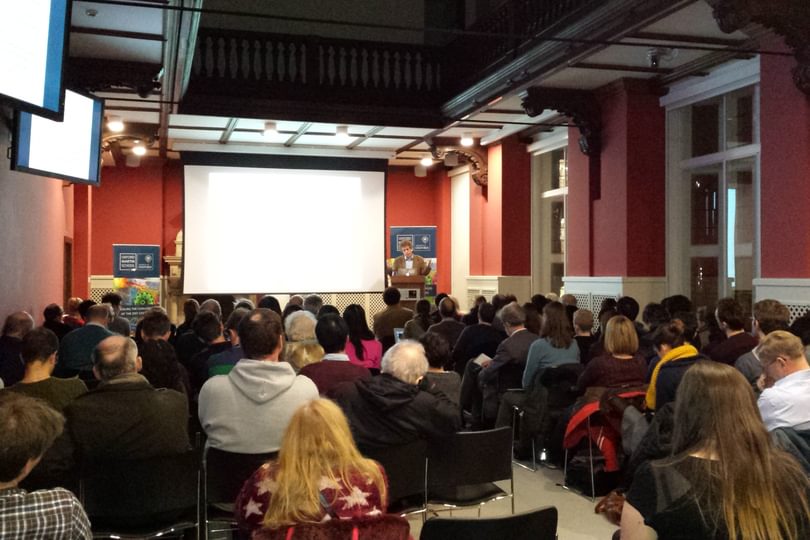
The impact of humanity’s’ ‘extended metabolism’ on our planet and questions around predicting climate change with certainty were explored in the first two seminars in the new Oxford Martin School series, ‘Creating a climate for change: what’s at stake in global climate negotiations’.
The seminars, which run until the end of May, are examining a range of different aspects of the climate change debate in the run-up to the UN Climate Change Conference (COP21) in Paris in December.
Professor Yadvinder Malhi, Director of the Oxford Centre for Tropical Forests, an Oxford Martin School institute, argued that human energy use, which has grown over the centuries with the development of agricultural practices and then massive expansion of industry, means “we are hitting planetary boundaries, and climate change is simply the most prominent example”.
He said that although the idea of continuous growth was only a few centuries old, it was now accepted as the norm. “Our human metabolism is beginning to surpass global natural metabolism, and leading to resource depletion,” he said. “We need to meet the aspirations of the world to live better than they do now but it can’t continue with rapid fossil fuel-based growth.”
Professor Tim Palmer, in his seminar ‘Climate change: dealing with uncertainty’, argued that to reduce the uncertainty in current modelling, a ‘big science’ approach on an international scale was required. “If we are serious then I think we have got to start embracing the sort of structure that no individual country can afford," he said. "But even this might not be enough to get down to 100 metre scales. We may need to move towards a new type of supercomputer.”
- Watch Professor Yadvinder Malhi's seminar
- Watch Professor Tim Palmer's seminar
- Video: 'Creating a climate for change'